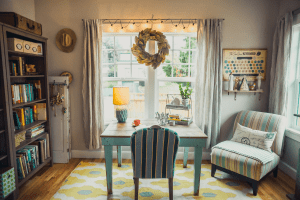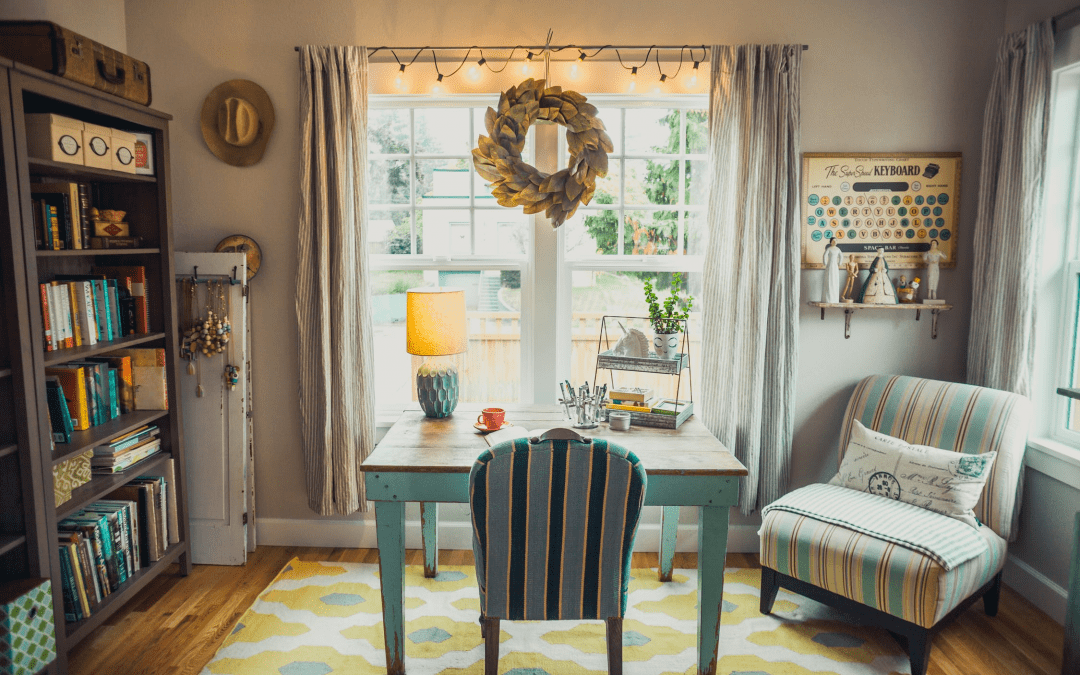Photo by Pixabay

Transforming your home
A home office isn’t just for telecommuting workers and home business owners. A home office is a space you can retreat to for focused productivity, whether that is on your work, a hobby, a side gig or creativity, and it may even boost the value of your home if you ever want to sell. Finding that dedicated space in your home can be tricky, which is why many people look to convert a guest room, upgrade a garage, or install a custom-built shed.
Do you want to create space in your home so you can focus on accomplishments? Let’s go through your three main options — shed, garage, or spare room.
Avoid Sacrificing Comfort
When you are thinking about remodeling a space, especially on a budget, you might think that the easiest corner to cut is comfort. We often equate comfort with luxury, not necessity, but a home office is different. If you’re not comfortable, you won’t spend any time there.
- Shed: If you don’t have space in your house, but you do have even a small space in your yard, consider a prefabricated metal shed, as they are affordable, durable against weather, and customizable. If your home office is for art, music, woodworking, or crafting, just be sure you install the shed on solid ground.
- Garage: A garage may be large, but you might have to share that space with storage boxes, outdoor equipment, or, even worse, a car. If your home office will be used to make important business calls, purchase some room dividers and custom screens to help limit disruptions in shared spaces.
- Spare Room: An old bedroom is an easy solution. If this room doubles as a guest room, however, you want to make sure the decor fits both scenarios. Use a Murphy bed in the room so that you can transform the space easily, while also limiting clutter.
Make Sure You Have Tech Accessibility
A home office can be rendered useless if you don’t have the right technology available. Some people may not realize this until it’s too late and the space has already been transformed. It’s important you think ahead of time about the technology you need, so maybe spend a few hours in the place working to see what it’s lacking.
- Shed: Even primitive spaces often need electricity and running water. While you may be considering a shed because it keeps things simple, you may want to be able to use lights, fans or heaters, computers, or phones. If you are doing any kind of art or photography you may want a sink with running water.
- Garage: Your internet access may be limited or weaker in your garage. If you are too far from your house’s WiFi, you may need to try and move your router closer to your garage or use a hotspot device when working. If the signal is weak, however, look into a WiFi booster or an internet-capable product. If your home office is used for video conferences, the internet is crucial for communication.
- Spare Room: With the same tech access as the rest of the house, using a spare room often requires few modifications. If this is the case, you may want to consider getting a separate entrance, especially if you have video-game streaming teens in the house. If you are running an e-commerce business from home, you don’t want your internet to go down while you are editing your site or processing inventory.
Design to Maximize Space
A home office can be one of the first places where life starts to clutter. Keep your space organized so you don’t lose your dedicated area to unopened mail or unread magazines.
- Shed: Since most home office sheds are small, clutter can pile up. Take a minimalist approach to designing your shed. For example, if your home office is a writer’s retreat, design bookshelves and storage so that it doesn’t take up too much living space.
- Garage: It can be easy for other areas of your life to creep into a home office, especially in a converted garage. If you’re using your garage as a studio, be sure you have one spot for formal work and another area dedicated to cultivating inspiration. If you have enough room, display some of your art and other work as if it were a mini-gallery.
- Spare Room: If your space is dedicated entirely to your home office, consider adding a small break area for moments to recharge away from your desk. If you use your home office for a freelance or consultant career, or you are an entrepreneur or small business owner, consider designing a break corner near a window.
Creating a home office in an unused space — like a shed, garage, or spare room — can be the very thing to elevate your work. Each space comes with its own unique challenges, but they are all opportunities to stay focused on growing your passions and pursuing your goals.
Guest Article by Suzie Wilson ⎸info@happierhome.net ⎸Happier Home

